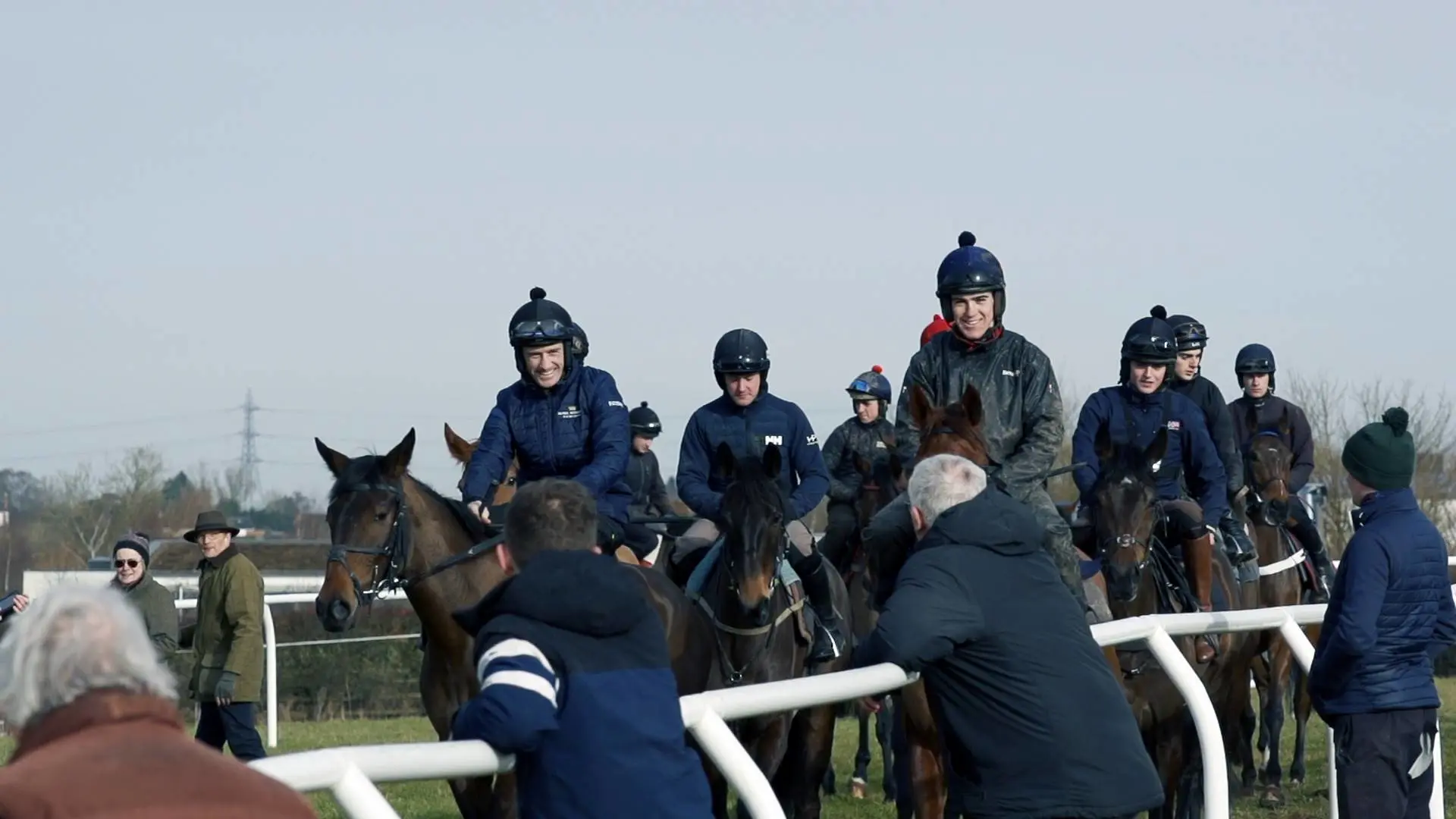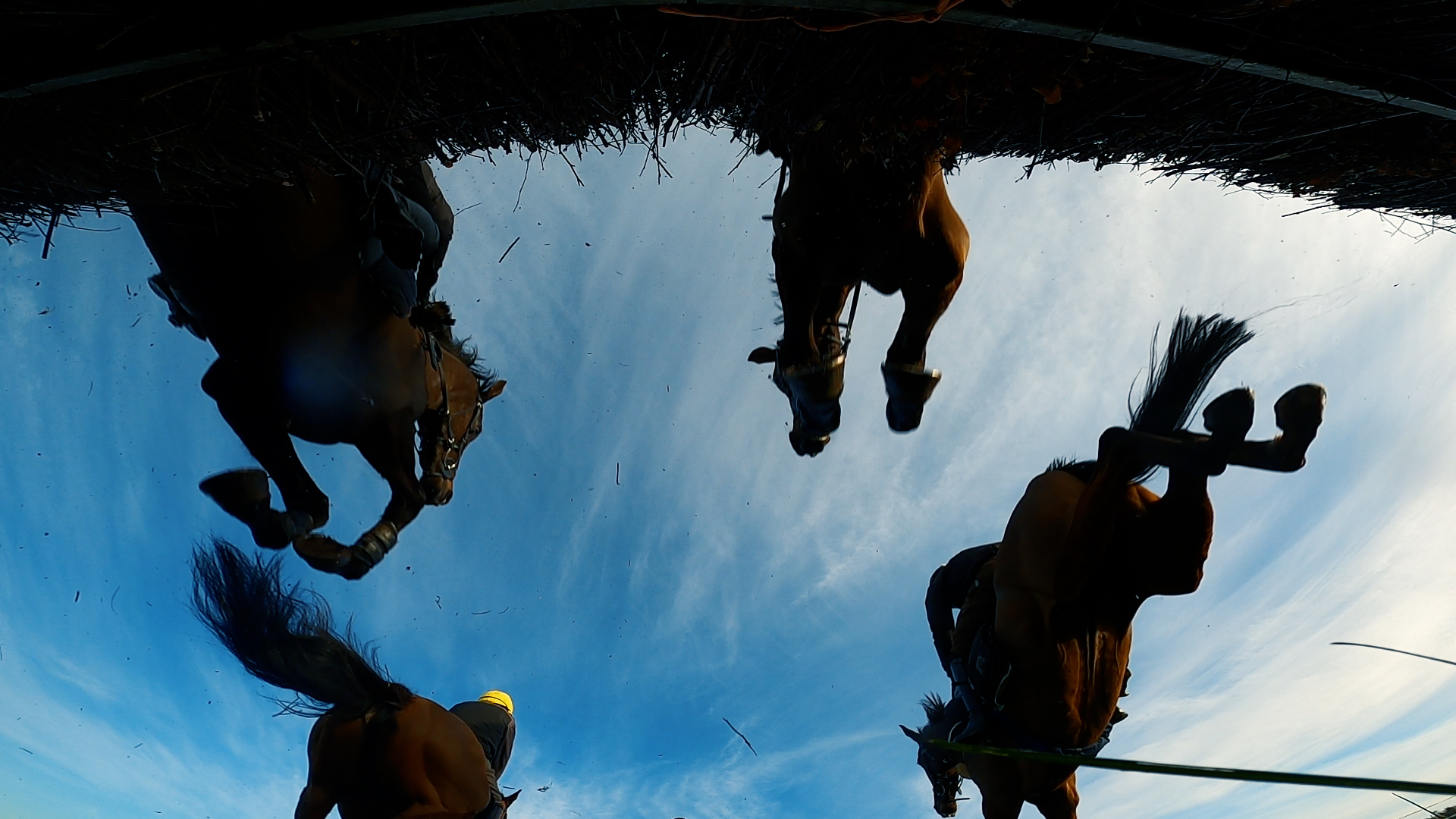SCHOOLING DAYS TRIALLED TO BOOST RACE-DAY EXPERIENCE
The new schooling days offer trainers more opportunities to prepare horses for the racecourse and build their race experience in a low-pressure setting.

A new initiative to support the training and preparation of racehorses for the track has been launched by British racing, with seven new schooling trial days set to take place across 2025. Spearheaded by the Horse Welfare Board and backed with funding by the Racing Foundation, the trials are designed to give trainers more opportunities to prepare horses for the racecourse in a low-pressure setting.
The trials, based on the successful Irish model, are aimed primarily at horses training for jump races offering crucial race-day experience to horses and jockeys before they compete in official races. The programme is open to horses of all ages and stages in their careers, from young unraced prospects to seasoned racehorses returning after a break.
The pilot scheme has already seen trials take place at Larkhill and Chaddesley Corbett Point to Point tracks, and Musselburgh Racecourse.
How the Schooling Trials Work
To simulate a race day, the new schooling days feature 6-8 ‘trials’ per day, with each typically involving 10 to 12 horses. Crucially, these are run at a slower pace than a competitive race and horses are not required to jump every obstacle or complete the course.
By simulating real race conditions horses gain valuable race-day experience without the pressure typically found on the racecourse.
Why the Trials Are a Game Changer for Trainers
Since the pilot began, nearly 250 horses have participated, with trainers praising the new opportunity to better prepare horses for the track. The trials offer both physical and mental benefits for horses, providing a complete race-day experience—from loading and traveling in a lorry to race preparations and racing with a larger group of horses than they might encounter in their usual training environment.
For smaller trainers, the trials offer access to larger field sizes than might not be available in their regular training settings, levelling the playing field with bigger operations. Whether for a young, unraced horse taking its first steps into racing, or a veteran returning after a break, the trials help prepare horses for the challenges of the racecourse.
While anecdotally better preparation and experience would suggest better outcomes for racing’s equine athletes, work is ongoing with data scientists at the Royal Veterinary College as part of the sport’s Racing Risk Models (RRM), to fully understand the role experience plays as a risk factor. It’s all part of the industry’s relentless efforts to drive down avoidable risk in the sport.
Notable participants have already taken part in the trial, including contender for Champion Trainer Dan Skelton, alongside Fergal O’Brien, Olly Murphy, Lucinda Russell and Nigel Twiston-Davies. Top jockeys including former Champion Jockey Harry Skelton and 2025 Champion Sean Bowen have also already ridden a trial for their bosses.
Kim Bailey, winning trainer of the Grand National, Cheltenham Gold Cup and Champion Hurdle during his career welcomed the initiative:
"They’re a great innovation and very worthwhile, certainly for young horses who will be running in the spring," he said. "It brings horses on, gets them in the horsebox and allows you to do something different with them. Getting them to gallop round a grass course in a different environment has got to be good news.”

What next?
Taking a break for the summer, the pilot will resume in late autumn to complete a full calendar year at which point the working group will assess the results, garner feedback and make recommendations as to future opportunities to enhance racehorse preparation.
Improving safety and minimising risk on the racecourse is just one of many focus areas by British racing’s Horse Welfare Board. The sport’s goal has always been to lead the way in setting the best welfare standards in the world, both on and off the racecourse.
The Horse Welfare Board was established in 2019 and has been responsible for overseeing the single overarching strategy for equine welfare in the racing industry, covering projects ranging from traceability, training, obstacle improvement and development, through to data and welfare funding. For more information on progress as a result of British racing’s equine welfare strategy, click here.